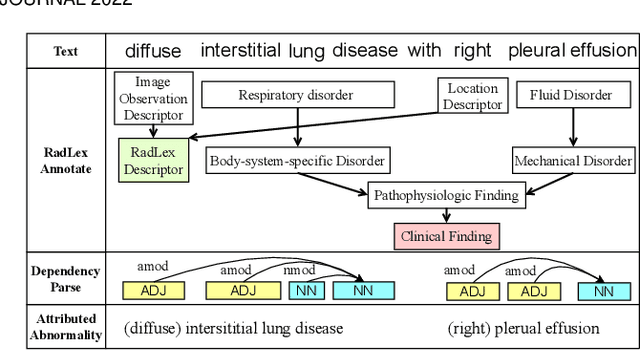Attributed Abnormality Graph Embedding for Clinically Accurate X-Ray Report Generation
Paper and Code
Jul 05, 2022



Automatic generation of medical reports from X-ray images can assist radiologists to perform the time-consuming and yet important reporting task. Yet, achieving clinically accurate generated reports remains challenging. Modeling the underlying abnormalities using the knowledge graph approach has been found promising in enhancing the clinical accuracy. In this paper, we introduce a novel fined-grained knowledge graph structure called an attributed abnormality graph (ATAG). The ATAG consists of interconnected abnormality nodes and attribute nodes, allowing it to better capture the abnormality details. In contrast to the existing methods where the abnormality graph was constructed manually, we propose a methodology to automatically construct the fine-grained graph structure based on annotations, medical reports in X-ray datasets, and the RadLex radiology lexicon. We then learn the ATAG embedding using a deep model with an encoder-decoder architecture for the report generation. In particular, graph attention networks are explored to encode the relationships among the abnormalities and their attributes. A gating mechanism is adopted and integrated with various decoders for the generation. We carry out extensive experiments based on the benchmark datasets, and show that the proposed ATAG-based deep model outperforms the SOTA methods by a large margin and can improve the clinical accuracy of the generated reports.
 Add to Chrome
Add to Chrome Add to Firefox
Add to Firefox Add to Edge
Add to Edge